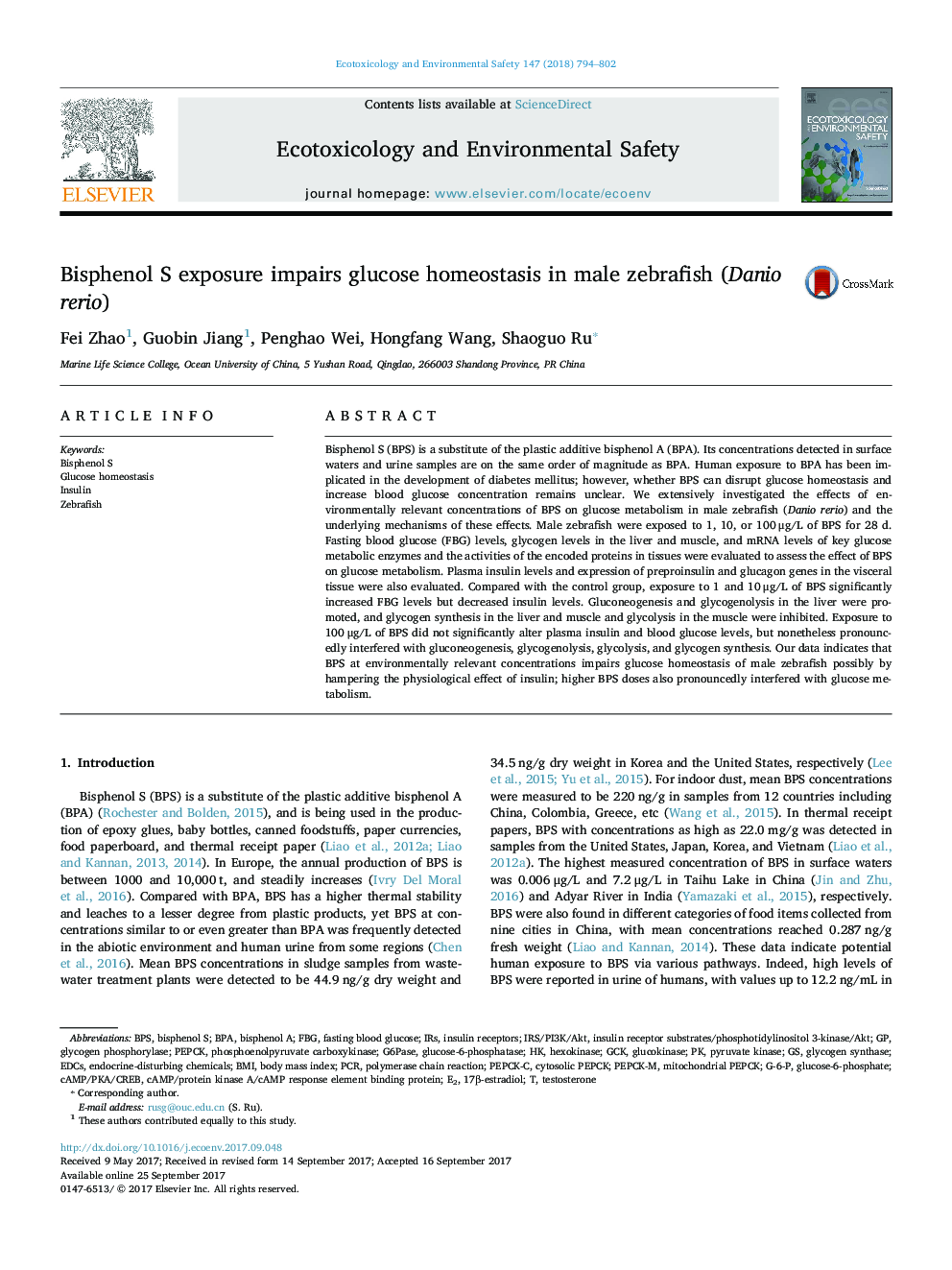| Article ID | Journal | Published Year | Pages | File Type |
|---|---|---|---|---|
| 5747833 | Ecotoxicology and Environmental Safety | 2018 | 9 Pages |
â¢BPS exposure increased fasting blood glucose levels of male zebrafish.â¢Lower BPS doses impaired glucose homeostasis possibly by hampering the physiological effect of insulin.â¢Higher BPS doses also pronouncedly interfered with glucose metabolism.
Bisphenol S (BPS) is a substitute of the plastic additive bisphenol A (BPA). Its concentrations detected in surface waters and urine samples are on the same order of magnitude as BPA. Human exposure to BPA has been implicated in the development of diabetes mellitus; however, whether BPS can disrupt glucose homeostasis and increase blood glucose concentration remains unclear. We extensively investigated the effects of environmentally relevant concentrations of BPS on glucose metabolism in male zebrafish (Danio rerio) and the underlying mechanisms of these effects. Male zebrafish were exposed to 1, 10, or 100 μg/L of BPS for 28 d. Fasting blood glucose (FBG) levels, glycogen levels in the liver and muscle, and mRNA levels of key glucose metabolic enzymes and the activities of the encoded proteins in tissues were evaluated to assess the effect of BPS on glucose metabolism. Plasma insulin levels and expression of preproinsulin and glucagon genes in the visceral tissue were also evaluated. Compared with the control group, exposure to 1 and 10 μg/L of BPS significantly increased FBG levels but decreased insulin levels. Gluconeogenesis and glycogenolysis in the liver were promoted, and glycogen synthesis in the liver and muscle and glycolysis in the muscle were inhibited. Exposure to 100 μg/L of BPS did not significantly alter plasma insulin and blood glucose levels, but nonetheless pronouncedly interfered with gluconeogenesis, glycogenolysis, glycolysis, and glycogen synthesis. Our data indicates that BPS at environmentally relevant concentrations impairs glucose homeostasis of male zebrafish possibly by hampering the physiological effect of insulin; higher BPS doses also pronouncedly interfered with glucose metabolism.
